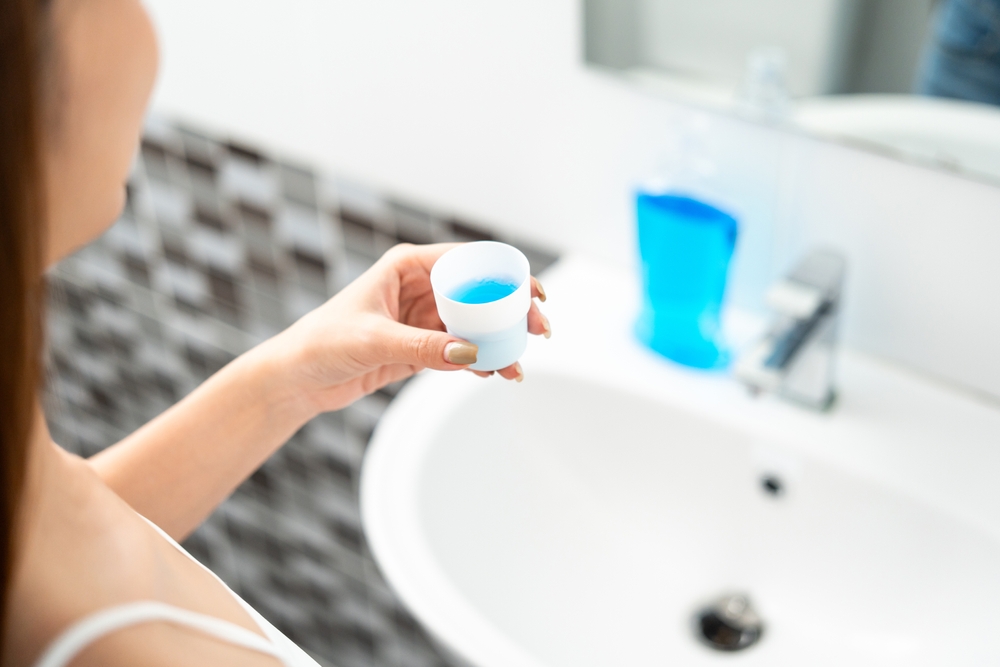Maintaining good oral hygiene goes beyond regular brushing and flossing. While these practices are crucial for dental health, mouthwash is an additional tool that can enhance your oral care routine. This blog from Emergency Dentistry in Florida will explore the benefits of mouthwash, how it works, and when to use it to keep your smile healthy and fresh.
What is Mouthwash?
Mouthwash is a liquid product designed to be swished around in your mouth to help improve oral hygiene. It often contains a combination of ingredients, such as antimicrobial agents, fluoride, and soothing agents, that address various aspects of oral health. Depending on its formulation, mouthwash can help in several ways, including reducing plaque, combating bad breath, and preventing gum disease.
How Does Mouthwash Work?
Mouthwash functions through a combination of active ingredients that target different aspects of oral health:
1. Antimicrobial Agents: These ingredients, such as chlorhexidine or cetylpyridinium chloride, help kill bacteria and reduce plaque formation. By targeting harmful bacteria, mouthwash can help prevent gum disease and bad breath.
2. Fluoride: Many mouthwashes contain fluoride, which strengthens tooth enamel and helps prevent cavities. Fluoride can also reverse early signs of tooth decay by re-mineralizing weakened enamel.
3. Astringents: These ingredients, such as zinc compounds, can help reduce oral malodor by neutralizing sulfur compounds responsible for bad breath.
4. Soothing Agents: Some mouthwashes include ingredients like aloe vera or essential oils that provide relief to irritated gums and enhance overall comfort.
Types of Mouthwash
Mouthwashes come in various formulations, each designed to address specific oral health needs:
1. Cosmetic Mouthwash: This type focuses primarily on freshening breath and providing a pleasant taste. It may not offer significant therapeutic benefits but can be a good option for a quick breath refresher.
2. Therapeutic Mouthwash: This formulation contains active ingredients that provide specific benefits, such as reducing plaque, preventing gingivitis, or strengthening enamel. Therapeutic mouthwashes are often recommended by dentists for individuals with particular oral health concerns.
3. Fluoride Mouthwash: Designed to help prevent cavities, fluoride mouthwash strengthens tooth enamel and can be especially beneficial for individuals prone to dental decay.
4. Antimicrobial Mouthwash: These mouthwashes contain ingredients that help control bacterial growth and reduce plaque and gingivitis. They are often recommended for individuals with gum disease or those looking for an extra level of protection.
When to Use Mouthwash
Integrating mouthwash into your oral care routine can enhance your dental health, but it’s essential to use it correctly:
- Post-Brushing: Mouthwash is most effective when used after brushing and flossing. Brushing and flossing remove food particles and plaque, while mouthwash can reach areas that brushing might miss. Use mouthwash as a final step in your routine to help ensure a thorough clean.
- After Meals: If you’re unable to brush your teeth after a meal, using mouthwash can help remove food particles and reduce the risk of plaque buildup. It can also provide a temporary solution to bad breath.
- Before Bed: Using mouthwash before bed can help ensure that bacteria and plaque are minimized overnight. This can be especially useful for those who are prone to dry mouth or have a higher risk of gum disease.
- As Directed by Your Dentist: For individuals with specific dental concerns, such as gum disease or frequent cavities, your dentist may recommend using mouthwash more frequently or choosing a specific formulation. Follow your dentist’s advice to address your unique oral health needs.
Tips for Effective Use
To get the most benefit from your mouthwash, keep these tips in mind:
1. Follow Instructions: Always read and follow the instructions on the mouthwash bottle. Some mouthwashes require dilution, while others should be used at full strength. Proper usage ensures you receive the intended benefits.
2. Avoid Eating or Drinking Immediately: After using mouthwash, try to avoid eating or drinking for at least 30 minutes. This allows the active ingredients to remain in contact with your teeth and gums for optimal effectiveness.
3. Use the Right Amount: Measure out the recommended amount of mouthwash, typically about 20 milliliters (4 teaspoons). Using too much won’t necessarily provide extra benefits and may cause irritation.
4. Choose the Right Product: Select a mouthwash that addresses your specific oral health needs. Consult with your dentist to determine the most appropriate product for your situation.
Mouthwash is a valuable addition to your oral care routine, offering benefits that complement brushing and flossing. By choosing the right mouthwash and using it correctly, you can enhance your oral hygiene, reduce bad breath, and protect against gum disease and cavities. For personalized recommendations and guidance, don’t hesitate to consult with your dentist. With the right approach, mouthwash can be an effective tool in maintaining a healthy, radiant smile.








